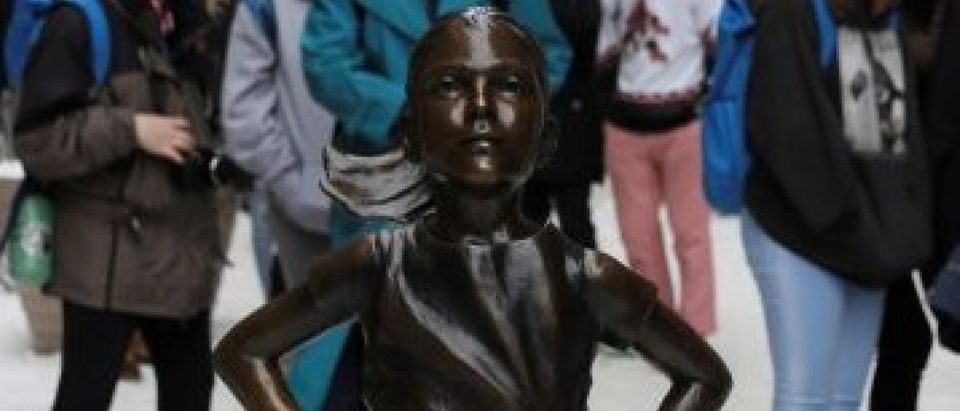Two female entrepreneurs who claim to have faced sexism when launching their Los Angeles-based startup say that inventing an imaginary male co-founder made the condescension all go away. Their claim has landed them an avalanche of free publicity.
The duo, Penelope Gazin and Kate Dwyer, were shopping around for investors to bank in their startup — a marketplace for weird art called Witchsy, but claim they faced doubts about the viability of their project from men who would’ve otherwise worked with them or invested in their website.
“When we were getting started, we were immediately faced with ‘Are you sure? Does this sound like a good idea?'” Dwyer said in an interview with Fast Company. “I think because we’re young women, a lot of people looked at what we were doing like, ‘What a cute hobby!’ or ‘That’s a cute idea.'”
The site, which is now celebrating its one-year anniversary, was designed as an alternative to Etsy by offering manual curation for tacky, “ironic” hipster art. The project gained traction from like-minded independent artists, for whom they managed to sell at least $200,000 worth of merchandise for within one year. It even received an investment from Rick and Morty’s Justin Roiland, with whom they are collaborating on merchandise.
While the project may be a success, its origins are mired with anecdotes about the sexism the duo faced early on. Gazin told Fast Company that an unnamed web developer they hired to work with them early on attempted to stealthily delete the website after she declined to go on a date with him.
In other cases, Gazin and Dwyer say that outside developers and graphic designers they tried to enlist for help sent them condescending emails. Fast Company describes these individuals as “almost always male, were often short, slow to respond, and vaguely disrespectful in correspondence. In one request, a developer started with the words ‘Okay, girls…'”
That all changed, they say, when they decided to invent a fictitious third co-founder named Keith Mann to communicate with outside parties.
“It would take me days to get a response, but Keith could not only get a response and a status update, but also be asked if he wanted anything else or if there was anything else that Keith needed help with,” said Dwyer, who added that one of the developers they interacted with showed deference to Keith more than he did to the women.
The Witchsy cofounders’ claim has landed them coverage not only with Fast Company, but with The Guardian, Business Insider, News.com.au, Quartz, and a host of smaller publications.
Dwyer told Quartz that when they took on the role of the imaginary man, they were able to put business ahead of niceties. “I think a lot of times as women, we’re always accommodating everyone else’s emotions first. In business, that’s not really possible and so we just kind of gave that up,” she said.
Ian Miles Cheong is a journalist and outspoken media critic. You can reach him through social media at @stillgray on Twitter and on Facebook.


